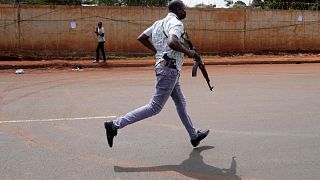Kenya
World athletics chief Sebastian Coe on Tuesday said the recent leakage of athletes’ personal medical information by hackers group Fancy Bears, which also appeared to link elite Kenyan athletes to doping, was unacceptable.
Addressing a news conference in the Kenyan capital on the eve of the Under-18 world athletics championships, the president of the International Association of Athletics Federations (IAAF) President said the leakage should not be interpreted as proof of doping.
“I am unhappy that it got into the public domain in that way. The permanent vigilance that as a sport we have always displayed around our anti-doping processes has been good and it is extremely difficult to conclude on one reading across a longitudinal set of studies that something is a sanctionable offence,” he said.
He also said one reading of an athlete’s biological passport did not constitute an infringement.
Among Kenyans whose personal medical records were leaked by the global hackers are the three-times world 1,500 metres champion Asbel Kiprop and javelin world champion and Olympic silver medallist Julius Yego.
British distance runner Mo Farah, a four-times Olympic gold medallist, was also a victim of the hack.














00:45
Tennis champion Iga Swiatek accepts a one-month suspension in doping case
00:59
Kenyan athlete Kipyegon Bett dies at the age of 26
01:01
Paul Pogba's 4-Year doping ban reduced to 18 months
Go to video
Paris 2024 Olympics: Congolese sprinter tests positive for steroid
01:14
Anti-doping agency says it can't guarantee Olympics will be clean
00:48
10K world record holder Rhonex Kipruto banned for 6 years in doping case